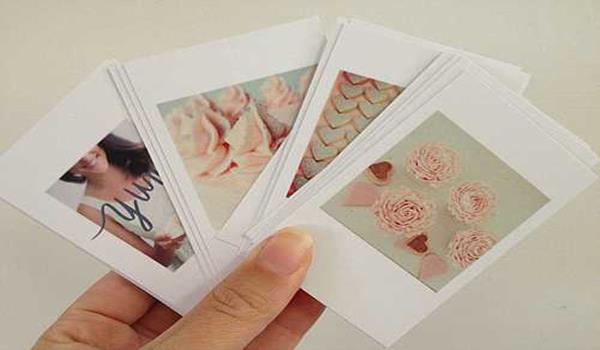Have you ever taken a photo of a moment, only to forget about it later? You’re not alone. Turns out Instagram and other photo apps like it could have an impact on our memories.
A study in the journal Psychological Science reveals a photo-taking-impairment effect—people remember fewer details about objects that are photographed compared to objects that are not.
Mobile devices and applications like Instagram make it easy to capture photos to over-filter and share with friends. But while these applications might make our lives easier, they also tend to act as a supplement for experiences.
The Google-fication Of Our Brains
It’s long been argued that Google has become a crutch for our memories. In 2011, a study showed that Google was, in fact, a detriment to our memory recall. According to the study by Columbia University, “When faced with difficult questions, people are primed to think about computers and that when people expect to have future access to information, they have lower rates of recall of the information itself and enhanced recall instead for where to access it.”
When asked tough questions, we simply Google for the answer, instead of trying to remember it ourselves. When traveling somewhere, we rely on the digital maps in our pockets, instead of remembering which route to take.
The same thing is happening with pictures.
The Psychological Science study led a group of participants around a museum, instructing them to take photographs of different objects. Some photographs included the object as a whole, while others zoomed in on a specific detail. Because participants knew the object was stored in their camera, they would be able to rely on the device when they needed to recall it in the future, thus putting it out of their memory—however, participants remembered objects that weren’t photographed in much greater detail.
Not all memory is lost, though. There is a way to combat the so-called photo-taking-impairment effect. The study showed that memories of details captured with a camera were not impaired. When participants zoomed in on a specific detail, their recollection was just as strong as when they didn’t take a photo at all.
Author and journalist Clive Thompson argues that technology isn’t ruining our memory—in fact, we’ve always had bad memories. In the past, we relied on our significant others, family members and friends to help us with recall. Turns out, Google, Facebook and Instagram aren’t making you stupid, they are acting as a supplement for your real-life memory banks.
Live Vicariously Through Pictures
For many of us, taking and sharing photos online is a way of showing our friends and followers what’s going on in our lives. But how many times do we actually go through the images and look at them ourselves?
Without us taking action to try and retrieve the memories stored in our Instagram timeline, they could disappear from our brains. Alternatively, looking back on sepia-toned square photos, much like reliving experiences with friends and family, could jog our memories and help rouse experiences once forgotten.
The rise of online photo-sharing and the Visual Web has beget unforeseen consequences. Because of the access to photo tools and social media platforms,food is enjoyed differently, and experiences are remembered or forgotten in different ways.
The old Native American belief that a picture steals a piece of your soul seems untrue, but when it comes to memories, smartphones are indeed capturing more than we might realize.






